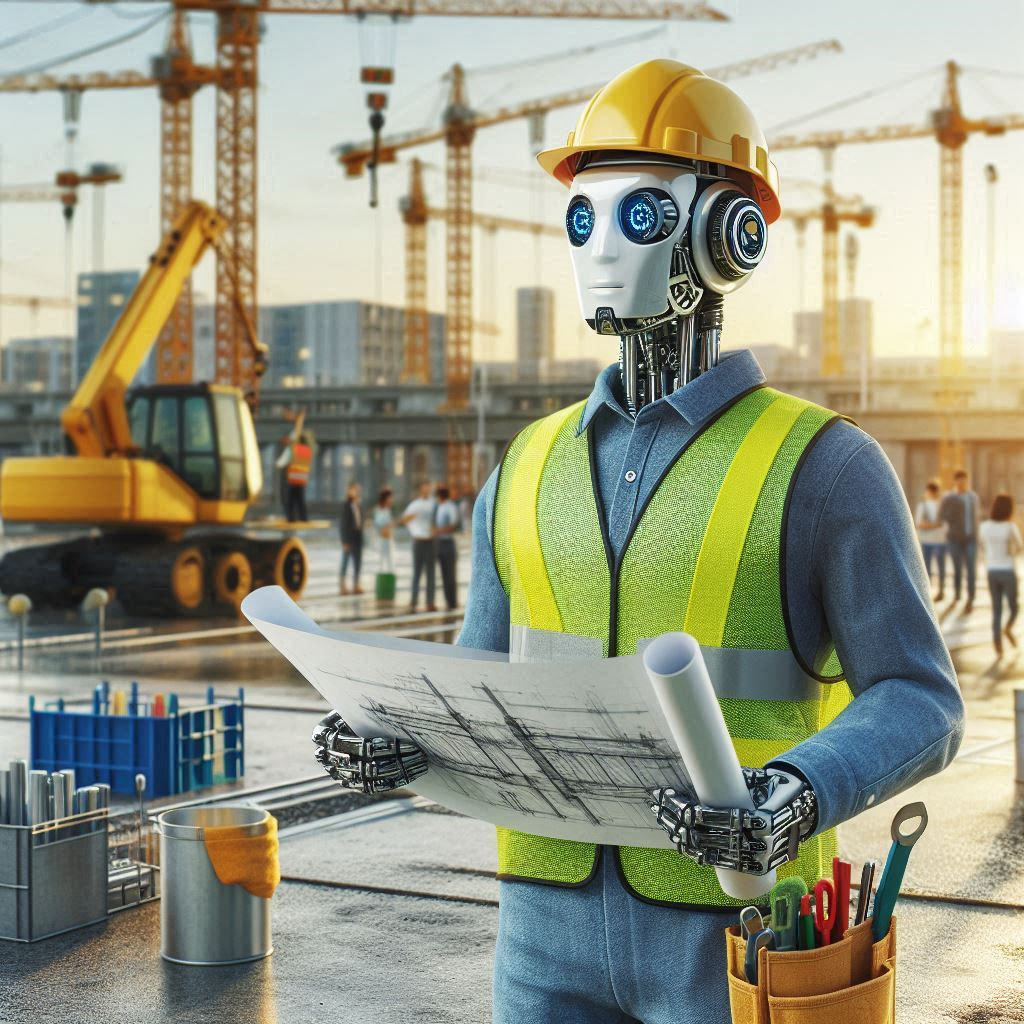
Artificial Intelligence (AI) is revolutionizing the field of construction contracting, offering contractors advanced tools and techniques to streamline project management, optimize resource allocation, and improve productivity on construction sites. From project planning and scheduling to cost estimation and risk management, AI-powered solutions empower contractors to achieve operational excellence and deliver successful construction projects that meet client expectations. Here’s how contractors can leverage AI to enhance project management efficiency:
AI algorithms analyze project requirements, resource availability, and task dependencies to create optimized project schedules. Contractors can use AI-driven project management software to generate realistic timelines, allocate resources efficiently, and sequence tasks based on priority and critical path analysis, ensuring timely project completion and minimizing delays.
AI technologies analyze historical cost data, material prices, and labor rates to generate accurate cost estimates for construction projects. Contractors can leverage AI-powered cost estimation tools to forecast project budgets, identify cost-saving opportunities, and negotiate competitive bids with suppliers and subcontractors, improving financial control and profitability.
AI-driven risk management systems assess project risks, regulatory requirements, and compliance standards to mitigate potential liabilities and ensure adherence to safety protocols. Contractors can use AI-powered compliance tools to monitor regulatory changes, implement preventive measures, and maintain a safe working environment on construction sites, reducing legal risks and enhancing worker safety.
AI algorithms optimize supply chain operations by analyzing material availability, delivery schedules, and inventory levels. Contractors can use AI-driven logistics solutions to streamline procurement processes, track material shipments, and minimize transportation costs, ensuring continuous supply chain flow and avoiding project delays due to material shortages.
AI-powered sensors and image recognition technologies inspect construction materials, detect defects, and ensure compliance with quality standards. Contractors can deploy AI-driven quality control systems to conduct real-time inspections, identify construction flaws early in the process, and implement corrective actions to maintain project quality and client satisfaction.
AI-enabled workforce management platforms analyze employee skills, certifications, and availability to match labor resources with project requirements. Contractors can use AI-powered workforce scheduling tools to optimize labor allocation, minimize overtime costs, and enhance workforce productivity through efficient task assignment and skill development initiatives.
AI-powered analytics dashboards provide real-time insights into project progress, performance metrics, and key performance indicators (KPIs). Contractors can use AI-driven project monitoring tools to track milestones, monitor budget variances, and generate comprehensive reports for stakeholders, facilitating informed decision-making and transparent communication throughout the project lifecycle.
By integrating AI technologies into project management practices, contractors can streamline operations, improve project outcomes, and maintain a competitive edge in the construction industry. AI-powered solutions empower contractors to leverage data-driven insights, automation, and predictive capabilities to optimize resource utilization, mitigate risks, and deliver construction projects that exceed client expectations.
FAQ
1. How does AI improve project planning and scheduling? AI analyzes project requirements, resource availability, and task dependencies to create optimized schedules. Contractors use AI-driven software to generate realistic timelines, allocate resources efficiently, and sequence tasks by priority, ensuring timely project completion and minimizing delays.
2. What benefits does AI offer for cost estimation and budget optimization? AI analyzes historical cost data, material prices, and labor rates to generate accurate estimates. Contractors use AI tools to forecast budgets, identify cost-saving opportunities, and negotiate bids with suppliers and subcontractors, improving financial control and profitability.
3. How can AI assist in risk mitigation and compliance management? AI systems assess project risks, regulatory requirements, and compliance standards to mitigate liabilities. Contractors use AI tools to monitor regulatory changes, implement preventive measures, and maintain a safe working environment, reducing legal risks and enhancing worker safety.
4. In what ways does AI optimize supply chain and logistics? AI optimizes supply chain operations by analyzing material availability, delivery schedules, and inventory levels. Contractors use AI-driven logistics solutions to streamline procurement, track shipments, and minimize transportation costs, ensuring a continuous supply chain flow and avoiding material shortages.
5. How does AI enhance quality control and defect detection? AI sensors and image recognition technologies inspect materials, detect defects, and ensure compliance with standards. Contractors deploy AI quality control systems for real-time inspections, early flaw detection, and corrective actions to maintain project quality and client satisfaction.
6. What is the role of AI in workforce management and skill matching? AI platforms analyze employee skills, certifications, and availability to match labor resources with project needs. Contractors use AI tools to optimize labor allocation, minimize overtime costs, and enhance productivity through efficient task assignments and skill development initiatives.
7. How does AI facilitate real-time project monitoring and reporting? AI dashboards provide real-time insights into project progress, performance metrics, and KPIs. Contractors use AI monitoring tools to track milestones, monitor budget variances, and generate comprehensive reports for stakeholders, facilitating informed decision-making and transparent communication.